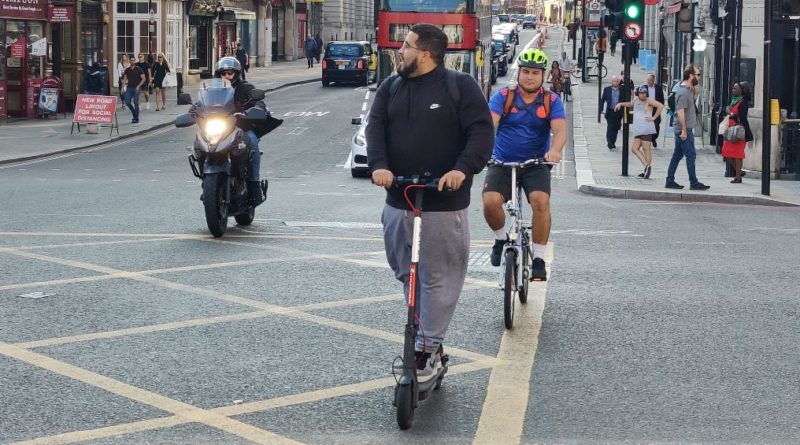DfT study on electric scooter perception throws up hurdles
The public perception of electric scooter use may prove a hurdle to adoption, with a DfT commissioned study undertaken by Kantar revealing a strong desire for compulsory helmet use, among other desires likely to reduce appeal.
There exists a predictable divide in opinion across age demographics, with older generations expressing more concerns than younger people, who are more likely to adopt the technology. In particular urban-dwelling male respondents aged 16 to 24 spoke most highly of the vehicles and had higher levels of actual usage.
Leading the expressed concerns is a feeling among 88% of survey respondents that helmets should be compulsory. Alongside, 71% of people wish to see formal training minus the need for a test, while 65% wanted a test to be compulsory. 41% viewed safety of pedestrians as a likely problem.
Compulsory helmet use has in the past been demonstrated to decrease ridership where such laws have been made for cycling and it is likely that a younger demographic would prefer to make their own choices, as people are able to when cycling in the UK.
Furthering the concerns for advocates of the micromobility form will be the finding that of trips replaced it is walking journeys that seem to be the most common form to be cannibalised, rather than driving, which would be the DfT’s objective.
Where should scooters ride?
There exists the greatest support for electric scooter use in cycle lanes on the road at 60%, while 42% wish to see them used only on pavement-based shared use paths. Just 15% expressed road use as acceptable and 14% on the pavements. 14% were likewise against using them anywhere on public land.
There is evidence that where the electric scooter is allowed to flourish the broader active travel world benefits. In Vienna more cycle lanes were built as electric scooter ridership demonstrated the demand for alternate mobility.
As for the advantages perceived by a generally uneducated public, 69% were able to see some pros. Most respondents admitted to not knowing all that much about electric scooters, with just 15% having good knowledge and 38% knowing a little. 47% knew “hardly anything”.
As for actual usage, by the start of 2020 when the study began only 7% had used the vehicles in the UK or abroad. Ownership, in the face of legality barriers on public land, is arguably high. 18% among those who had previously used a shared unit had bought an electric scooter since.
24% held the low polluting status of the LEV as a plus point, while 16% said the convenience (12%) and speed (16%) was their main reason to warm to the transport form.



